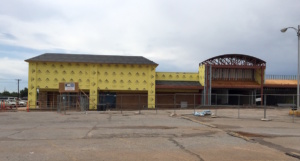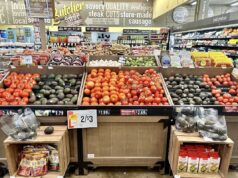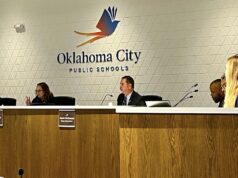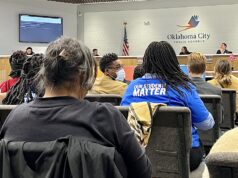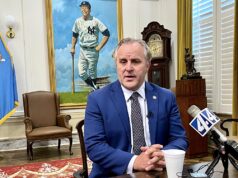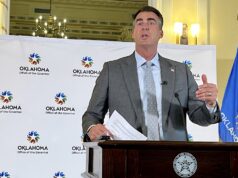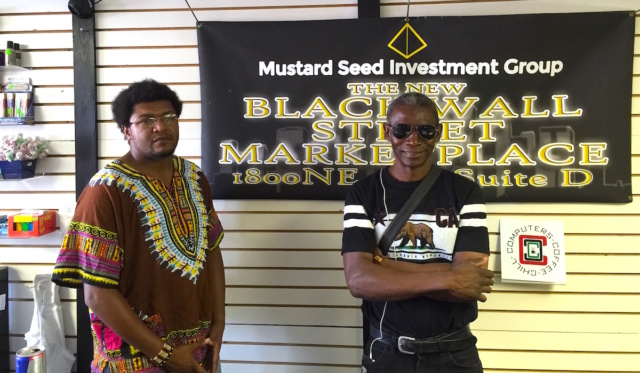

Mike Hall and Sam Hill of the New Black Wall Street Marketplace want to change how their neighbors in northeast Oklahoma City think about their community. They want people to feel secure in their neighborhood, to succeed in business and to reinvest in their area’s prosperity.
And, perhaps most importantly, they don’t want people to feel like they have to leave to succeed.
“When you grow up on the east side, your sign of success is when you leave the east side,” Hill said. “We need to get back to that sense of community where you go to college, get your bachelor degree, get your masters, get your doctorate and succeed, but stay here. By staying here, you turn the tide.”
This is the idea behind the New Black Wall Street Marketplace and its parent organization, Mustard Seed Investment Group Society, a business incubator working to build entrepreneurship in the area, expand the tax base and create an infrastructure for productivity and prosperity. Located at 1800 N.E. 23rd Street in a small storefront, the marketplace currently houses a handful of small retailers in its physical space, but Mustard Seed is working with more than 35 fledgling businesses in total to establish themselves, file the proper tax and incorporation forms, create business plans and open to customers.
According to Hall, all of the participating businesses (including a hair-care company, clothing retailers, a natural soap maker and a computer store) reinvest 10 percent of their earnings back into Mustard Seed Investment. Currently, the participating businesses bring in $8,000 per month, with about $800 recapitalized into the investment group. Members also participate in profit sharing.
‘Everything is connected’
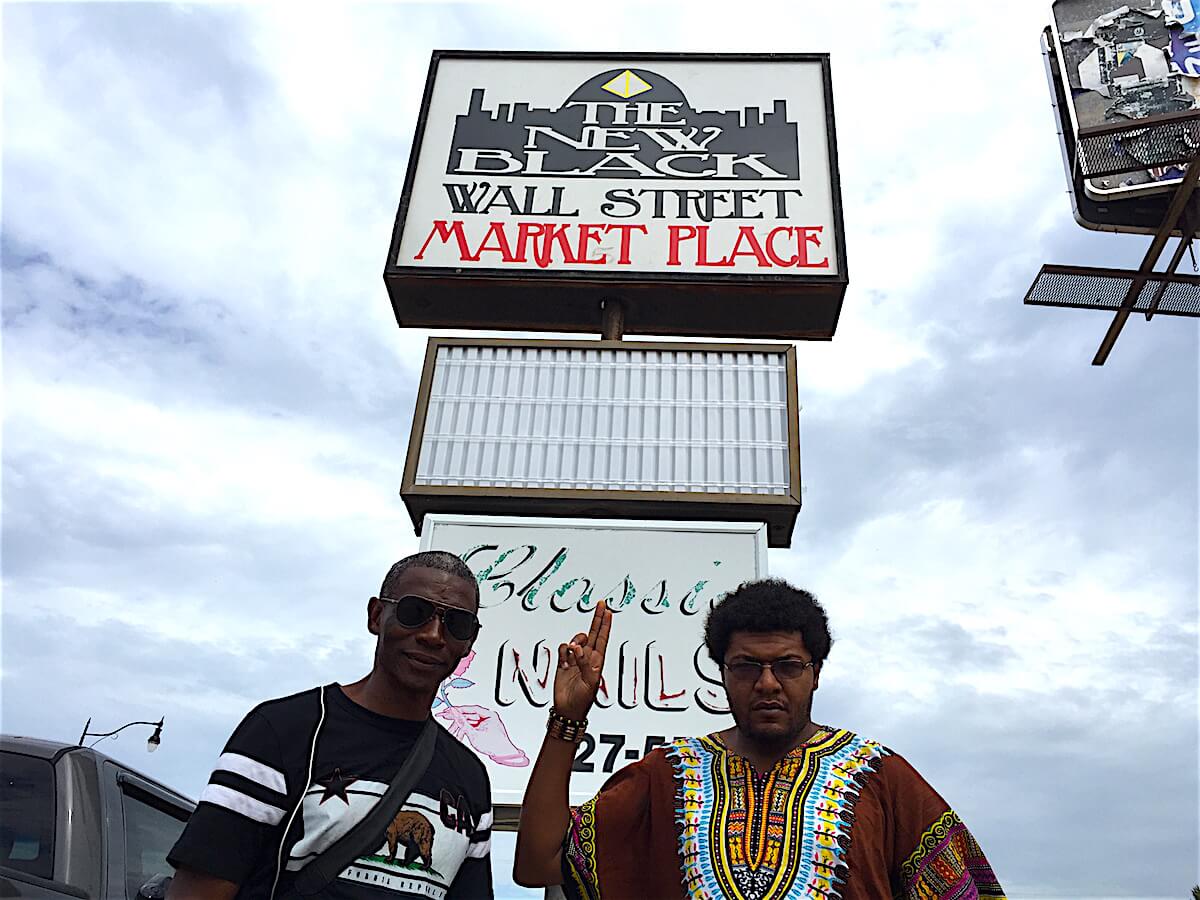
Nearly 100 years after the attacks on Greenwood, race relations and financial disparity still create sharp divisions and limit financial opportunities in largely African-American communities.
Elijah Malachi, a documentary filmmaker and Mustard Seed/New Black Wall Street board member, said the time is right to resurrect the idea of a business district owned, operated and patronized by African-Americans.
“Of course, the Black Wall Street is not a new concept — it’s a very old concept,” he said. “It’s part of a resurgence of people taking control of their community, taking control of their tax dollars and taking control of their future. It’s not a perfect system. It still has things that need to be worked out. But it’s the only system right now that is in action. It’s not a theory, an idea or a discussion topic. It’s working.”
In Malachi’s view, the other option is no option at all.
“If we don’t have black businesses, then we can’t hire black workers, and if we can’t pay black workers, we can’t support black families,” he said. “Everything is connected and is in tandem. When we take our dollars out of the community and spend them with people who are never going to come back to our community and repatriate those dollars, we are contributing to the destruction of our community.”
‘Control your infrastructure’
Hall, a former Firestone worker who lost his job after 28 years and saw much of his stock portfolio value evaporate in the wake of the post-9/11 economic downturn, recruits new businesses into the investment group and encourages new members to do the same. Members are able to purchase $5 partnership certificates in the organization, with a goal of selling 100,000 and using the $500,000 as matching capital to fund a new, mixed-use headquarters on Northeast 23rd Street.
The five-story facility, named the Garvey Center to honor Jamaican-born business and political leader Marcus Garvey, will feature retail space, office levels and residential areas, along with a technology center. For Hill, who worked for several technology companies before joining Mustard Seed, technology will play a significant role in the rise of the New Black Wall Street. He hopes to acquire white space frequencies that could significantly improve internet access in the area.
“Everybody remembers when grandmom went crazy, when the TV signals went digital and they had to get new rabbit ears,” Hill said. “When the TV signals went digital, they cut the frequency space by about a third.”
Hill said that leftover frequency space will allow him to provide high-speed internet/voice over internet protocol (VoIP) phone service to the area. It is all part of improving the infrastructure, Hill said, whether it is school buildings, streets or internet service. With the tax base he hopes to build through Mustard Seed and the New Black Wall Street, Hill believes the neighborhood will be able to fund that infrastructure.
“Let’s get into a position where we can control and own our own infrastructure,” he said. “If you control your infrastructure, it’s no longer a drain on your own personal resources.”
‘Become the change’ in northeast Oklahoma City
But while improved infrastructure is one thing, gentrification is another. Hill said he is hoping to take part in the tax
increment financing (TIF) that is funding redevelopment efforts such as Northeast Plaza, the early 1960s shopping center at Northeast 36th Street and Kelly Avenue. He is concerned, however, that long-standing businesses in the area will be pushed out and long-time residents will be unable to afford the property taxes in the area.
RELATED
Northeast Oklahoma City commerce: Two projects with different progress by Danny Marroquin
“Any time you have these kind of government-funded programs, it can become a form of gentrification,” Hill said. “I don’t care what anyone says, you can’t build a $50 million project on the corner and not have the property value of grandmother’s house across the street increase.”
On the other hand, higher property taxes would mean more ad valorem dollars for northeast Oklahoma City schools, libraries and other public entities.
If Mustard Seed and the New Black Wall Street Marketplace can join in those efforts and black entrepreneurs are able to take part in the TIF, then the residents can reap the rewards. Hill, who spent part of his youth in Washington, D.C., said he watched gentrification push a sizable percentage of the district’s African-American population into surrounding areas such as Prince George’s County, Maryland. He doesn’t want to see that happen to Oklahoma City’s northeast side.
“Let’s stay in our community and become the change,” Hill said. “Let’s stop talking about the problems and become an active solution.”









